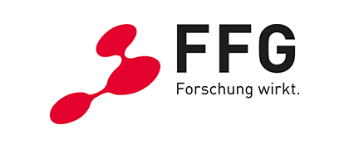The ACOSAR Project
The Advanced Co-Simulation Open System Architecture (ACOSAR) project was an ITEA3 project that led to the initial specification of the Distributed Co-Simulation Protocol (DCP).


Facts
- Duration: 09/2015 - 08/2018
- Cost: 8.123k€
- Effort: 60 person years
- ITEA3 ACOSAR project page
Consortium
- 3 original equipment manufacturers: Porsche AG, Volkswagen AG, Groupe Renault
- 9 automotive supply chain simulation tool vendors, system and component providers: AVL List GmbH, Robert Bosch GmbH, dSPACE GmbH, ETAS GmbH, ESI-ITI GmbH, Ks.MicroNova GmbH, Spath Micro Electronic Design GmbH, Siemens PLM Software, TWT GmbH
- 4 partners from research and academia: Ilmenau University of Technology, Leibniz Universität Hannover, RWTH Aachen University, Virtual Vehicle Research GmbH
Achievements
ACOSAR responded to a strong market request in a plenitude of industrial domains: Consistent and seamless system development and validation. For this, ACOSAR uses a modular co-simulation approach, supporting flexible system development by its modular characteristics, to integrate domain-specific subsystems. However, in development stages where real-time systems have to be integrated into simulation environments, huge configuration effort is still necessary. ACOSAR focused on the specification of a non-proprietary, open real-time system interface, the so-called Distributed Co-Simulation Protocol (DCP). It can be used for sharing relevant information to enable efficient and safe operation of real-time systems, e.g. simulation tools, microcontrollers, electronic control units, operating systems, virtual platforms, or test beds. A communication architecture and protocol was defined, which is independent from the actually used communication system. An early version of the DCP was published as a publicly available ITEA3 project deliverable, representing a release candidate for standardization.
Acknowledgments
The ACOSAR project was partially funded by the Austrian Competence Centers for Excellent Technologies (COMET) program, the Austrian Research Promotion Agency (FFG), and by the German Federal Ministry of Education and Research (BMBF) under the support code 01lS15033A.


Modelica Association
In the final year of ACOSAR, the consortium members decided to persue standardization of the DCP with the Modelica Association. Since July 2018 the DCP is developed as a Modelica Association Project (MAP).